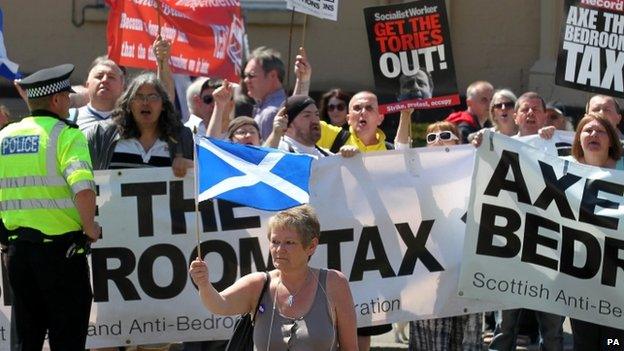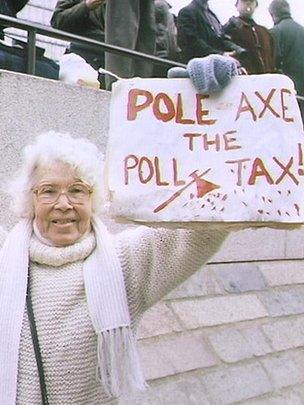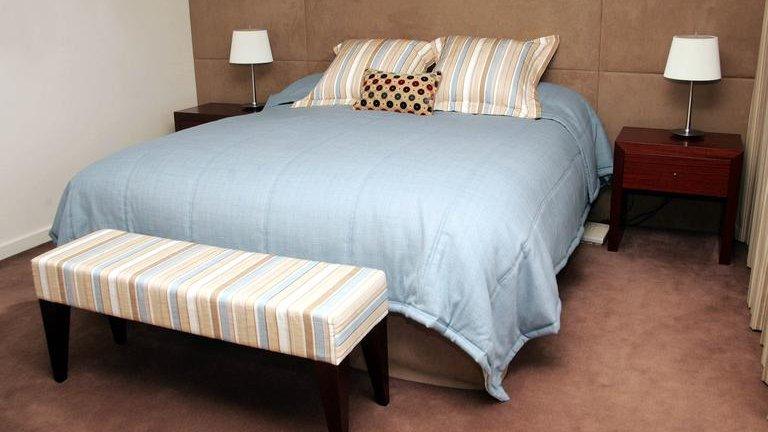Is the 'bedroom tax' the new Poll Tax?
- Published

Opponents of the so-called "bedroom tax" have taken to the streets of Scotland
It has yet to attain the iconic status of the institution of the Community Charge. However, the withdrawal of the spare room subsidy has definitely gained an enhanced political salience, beyond its arithmetical and social impact.
To put it another way, when it comes to broad impact, the "bedroom tax" is the new Poll Tax. Nearly.
Cast your mind back to the last Scottish Liberal Democrat conference in Dundee. (I know, I know, it's never far from your conscious recollection.)
At that conference, the party courageously took a vote on the "bedroom tax". A policy implemented, as you will recall, by a UK government in which they are coalesced.
Only one person in the hall voted to support the withdrawal of the spare room subsidy. The others were resolute for reinstatement. Some slipped out for a coffee. My search for the Dundee One goes on, with stout denial the general response, even from MPs.

The Community Charge, known as the Poll Tax, also brought about protests
If you were to hold a comparable vote at an SNP or Labour conference, I very much doubt if you would find even one supporter.
To be clear, both parties dislike the "bedroom tax". They are agin it. Given the opportunity, they would scrap it. They regard it as socially divisive. On the topic of the withdrawal of the spare room subsidy, they say no.
So the talks which are being held between Scottish government ministers and the Labour front bench in pursuit of ways to mitigate the impact of the measure in Scotland are genuine. They are authentically seeking a solution which, they believe, will help people in distress.
All clear? Good. However, that does not mean that there is not a further political dimension at play here, linked as ever to the referendum.
Just as Labour and other supporters of devolution used to argue that the Poll Tax would not have been introduced in a devolved Scotland, so the "bedroom tax" is now a facet of the independence argument. On both sides.
Labour have used it to argue that the SNP deliberately underplay their existing devolved powers in order to minimise Holyrood's clout and magnify the case for independence.
In return, the SNP say that the "bedroom tax" proves that Scotland requires to take control of all the levers of economic power, including welfare.
Constitutional politics
As things stand, John Swinney has found an extra £15m to top up the mitigation measures.
But Ministers are adamant that this can only be deployed as Discretionary Housing Payments if the UK government agrees to lift the existing cap on Scottish interventions. Other avenues are also being explored, with similar caveats.
The approach to the UKG, in itself, also features duality. This is, to repeat, a genuine search for a solution to a perceived social and economic problem. But in pressing the UKG to lift the cap, SNP ministers simultaneously make the point that it would be preferable if Scotland took the decisions in the first place.
Both sides, therefore, are mingling governmental decision making with constitutional politics. Entirely understandably and entirely reasonably.
- Published3 February 2014

- Published31 January 2014

- Published30 July 2013
